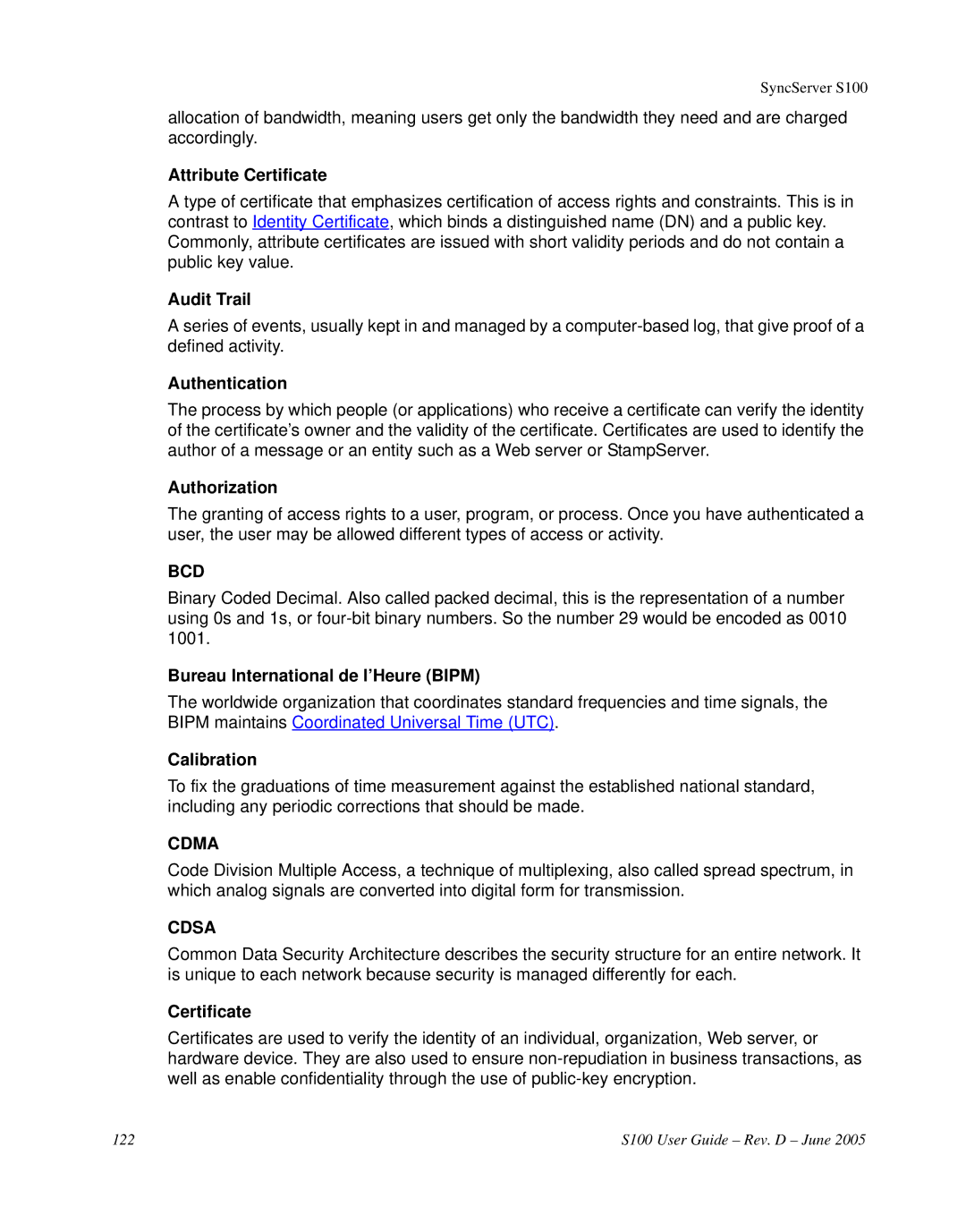SyncServer S100
allocation of bandwidth, meaning users get only the bandwidth they need and are charged accordingly.
Attribute Certificate
A type of certificate that emphasizes certification of access rights and constraints. This is in contrast to Identity Certificate, which binds a distinguished name (DN) and a public key. Commonly, attribute certificates are issued with short validity periods and do not contain a public key value.
Audit Trail
A series of events, usually kept in and managed by a
Authentication
The process by which people (or applications) who receive a certificate can verify the identity of the certificate’s owner and the validity of the certificate. Certificates are used to identify the author of a message or an entity such as a Web server or StampServer.
Authorization
The granting of access rights to a user, program, or process. Once you have authenticated a user, the user may be allowed different types of access or activity.
BCD
Binary Coded Decimal. Also called packed decimal, this is the representation of a number using 0s and 1s, or
Bureau International de l’Heure (BIPM)
The worldwide organization that coordinates standard frequencies and time signals, the BIPM maintains Coordinated Universal Time (UTC).
Calibration
To fix the graduations of time measurement against the established national standard, including any periodic corrections that should be made.
CDMA
Code Division Multiple Access, a technique of multiplexing, also called spread spectrum, in which analog signals are converted into digital form for transmission.
CDSA
Common Data Security Architecture describes the security structure for an entire network. It is unique to each network because security is managed differently for each.
Certificate
Certificates are used to verify the identity of an individual, organization, Web server, or hardware device. They are also used to ensure
122 | S100 User Guide – Rev. D – June 2005 |
